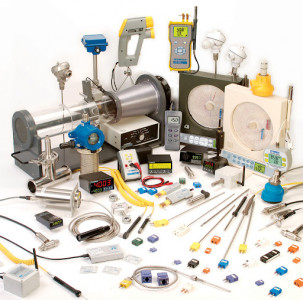
B.sc instrumentation Admission,Eligibility,College,Syllabus
- Science
Notification:

Table of Contents Heading
In the modern world, where technology has penetrated almost all industries, gaining a mastery of instrumentation cannot be overemphasized. In today's business world, where many industries try to automate their work processes and aim at accuracy, every industry needs professionals with specialization in instrumentation. The B.Sc. (Instrumentation) curricula offer the students a noble grounding in the ways of measuring and controlling process variables so that they can set up, integrate and monitor complex instrumentation procedures. Based on practical experience and theoretical concepts, graduates are taught to assist in numerous industries, from manufacturing to research, healthcare, and service industries involved in environmental surveillance.
B.Sc. (Instrumentation) is a three-year undergraduate degree course designed to give students an understanding of principles of measurement and control in light of industrial applications. The content of the study includes problems concerning sensor technology, automation, process control, and data acquisition, which prepare students for both theoretical and practical knowledge. First, they carry out laboratory activities as well as internships to acquire adequate skills to solve problems in instrumentation. It also helps students tackle real-world challenges in industrial, energy, medical, and environmental monitoring following the program. Bearing in mind the trends in relation to the growing levels of automation and the need for precision, this program prepares students for the specific responsibility for the improvement of productivity and safety within various industries. Graduates are industry-ready for employment in the power industry as well as in other sectors where creativity and technical skills are valued, especially in instrumentation technologies.
Entrance into the B.Sc. (Instrumentation) program depends on the candidate's 10 + 2 senior secondary education qualification with a pass percentage in Science stream subjects like Physics, Chemistry and Mathematics. The specific percentage may, however, differ from one university to the other, although some universities administer entrance examinations to favour the program. Additional requirements may include:
India is home to several esteemed institutions offering B.Sc. (Instrumentation) programs. Some of the top colleges include:
The curriculum of a B.Sc. (Instrumentation) program typically includes the following core courses:
Graduates with a B.Sc. (Instrumentation) degree can pursue various career paths or opt for further studies. Master’s programs in Instrumentation Engineering, Control Systems, or Automation provide opportunities for specialization. Doctoral programs enable students to engage in advanced research and development in instrumentation technologies. Some popular higher study options include:
The monthly salary waged to a B.Sc. (Instrumentation) fresh graduate in India varies from INR 25,000 to INR 50,000. This range can vary based on several factors, including:
The beginning pay is also very reasonable, but there is much more growth room from that starting point. The following is a list of careers and how much they can pay:
Graduates can explore various additional income streams, such as:
The course B.Sc. (Instrumentation) stands for Bachelor of Science in Instrumental which provide a very progressive area for people who are interested in the field of technology and instrumentation. Graduates are capable of designing and installing efficient complicated instruments that assist in several industries. This subject offers many opportunities to contribute to technology due to the development of automation and precise measurements. This program creates a platform for candidates to further their studies and depart the labour market with the skills needed in a changing economy.
How likely are you to recommend Medicaljagat.com to a friend or a colleague?